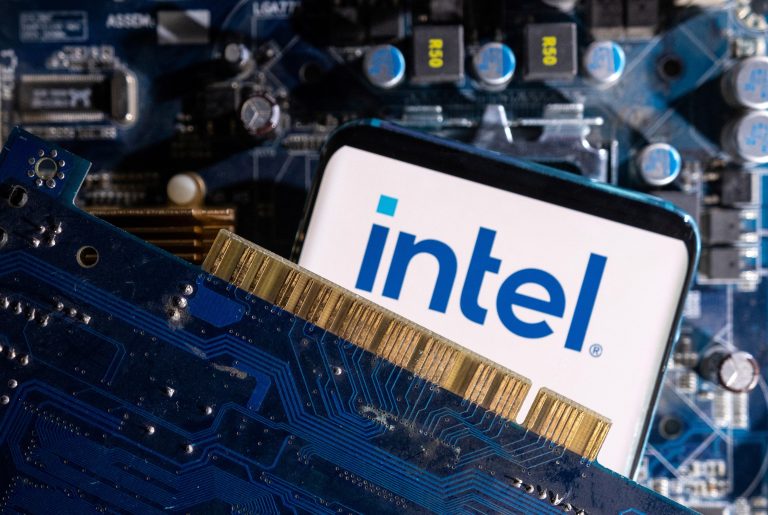SANTA CLARA, California (Reuters) — Intel is planning a $100 billion spending spree across four U.S. states to build and expand factories after securing $19.5 billion in federal grants and loans – and hopes to secure another $25 billion in tax breaks.
The centerpiece of Intel’s five-year spending plan is turning empty fields near Columbus, Ohio, into what CEO Pat Gelsinger described to reporters on Tuesday (March 19) as “the largest AI chip manufacturing site in the world”, starting as soon as 2027.
The U.S. government announced the federal funds to Intel under the CHIPS Act on Wednesday.
Intel’s plan will also involve revamping sites in New Mexico and Oregon and expanding operations in Arizona, where longtime rival Taiwan Semiconductor Manufacturing Co is also building a massive factory that it hopes will receive funding from President Joe Biden’s push to bring advanced semiconductor manufacturing back to the United States.
The funds provided by Biden’s plan for a broader chipmaking renaissance will go a long way to help Intel mend its wounded business model.
Success
You are now signed up for our newsletter
Success
Check your email to complete sign up
For decades, the firm led the world in making the fastest and smallest semiconductors, selling them at a premium price and plowing the profits back into more research and development to stay ahead of the pack.
But Intel lost that manufacturing edge in the 2010s to TSMC and its profit margins plummeted as it cut prices to keep market share with inferior products.
Gelsinger announced a plan in 2021 to return Intel to the No. 1 position, but he has said he will need government support to make the plan profitable.
With that assistance in hand, it is now time for Intel to spend.
Gelsinger said about 30 percent of the $100-billion plan will be spent on construction costs such as labor, piping and concrete. The remaining will go towards buying chipmaking tools from firms such as ASML, Tokyo Electron, Applied Materials and KLA, among others.
Those tools will help bring the Ohio site online by 2027 or 2028, though Gelsinger warned the timeline could slip if the chip market takes a dive. Beyond grants and loans, Intel plans to make most of the purchases from its existing cash flows.
“It will still take three to five years for Intel to become a serious player in the foundry market” for cutting-edge chips, said Kinngai Chan, an analyst at Summit Insights.
However, he warned more investment would be needed before Intel could overtake TSMC, adding that the Taiwanese firm could remain the leader for “some time to come”.
Gelsinger has previously said a second round of U.S. funding for chip factories would likely be needed to re-establish the U.S. as a leader in semiconductor manufacturing, which he reiterated on Tuesday.
“It took us three-plus decades to lose this industry. It’s not going to come back in three to five years of CHIPS Act” funding, said Gelsinger, who referred to the low-interest-rate funding as “smart capital”.
But even with the federal backing, Intel needs to show that it can compete with its Taiwanese and Korean rivals sooner rather than later, said Ben Bajarin, CEO of analyst firm Creative Strategies.
“It will be important to know how much longer ‘smart capital’ is needed for Intel before they can stand on their own,” Bajarin said.
Overall, though, Intel would be the most important chipmaker for U.S. interests, even as rivals build in the country, said Jimmy Goodrich, semiconductor export and technology adviser to the RAND Corp.
“Only Intel has the workforce, technology, and supply chain that is largely U.S.-centric. So, while what TSMC and Samsung are doing here is important and should be welcomed, it’s also important to have a strong home team,” he said.
Reporting by Stephen Nellis in Santa Clara, California; Additional reporting by Zaheer Kachwala in Bengaluru; editing by Peter Henderson, Christian Schmollinger, Varun H K and Pooja Desai.















